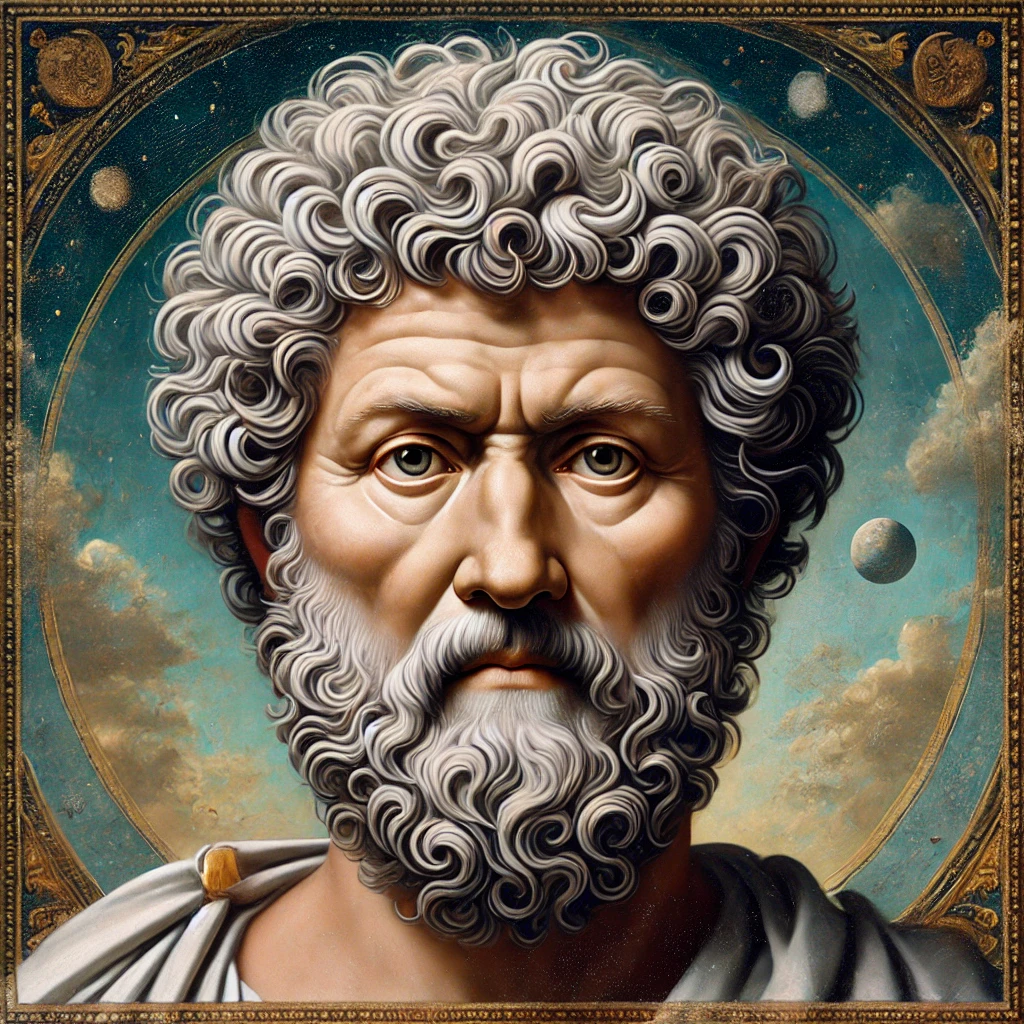Marcus Aurelius

Birth Date: 121-04-26
Death Date: 180-03-17
Place of Birth: Rome, Italy
Place of Death: Sirmium, Roman Empire
Century: 2nd
Region: Ancient Rome
"You have power over your mind, not outside events. Realize this, and you will find strength."
Marcus Aurelius was a Roman emperor who ruled from 161 to 180 AD. Despite his powerful position, he is remembered for his commitment to Stoic philosophy, which teaches that we should focus on what we can control and accept what we cannot. His Stoic reflections were written while he led Rome during difficult times, including wars and plagues.
Marcus Aurelius' Stoic philosophy teaches us to accept what happens with dignity and self-control. He believed that we should focus on what we can control and maintain rational thinking, especially in challenging situations.
Meditations: A series of personal writings by Marcus Aurelius, offering insights into Stoic philosophy. These reflections were written for his own self-improvement and focus on inner strength, humility, and the transient nature of life.
Marcus Aurelius was influenced by earlier Stoic philosophers like Epictetus and Seneca, who also focused on personal virtue and wisdom in the face of life's challenges.
His book 'Meditations' has inspired many philosophers, leaders, and everyday people to embrace Stoicism. Modern Stoic thinkers, like Ryan Holiday, continue to be influenced by his teachings on resilience and inner peace.
While he was admired as a philosopher, his reign included some controversies. For example, his policies toward Christians are debated, as it was during his reign that Christians faced persecution. Despite being a Stoic, some felt he didn't always apply his philosophical beliefs consistently in his actions as emperor.
Nietzsche: Friedrich Nietzsche criticized Marcus Aurelius for his 'slave morality,' believing that his Stoic philosophy was too passive and focused on accepting suffering rather than overcoming it.
Marcus Aurelius' Stoic philosophy, particularly his book 'Meditations,' continues to be widely read and admired. His ideas on controlling one's reactions to external events remain relevant for those seeking personal growth and resilience.
Despite being a Roman emperor, Marcus Aurelius lived a modest life. He saw himself more as a philosopher than a ruler. His personal writings were never meant to be published, yet they became one of the most influential Stoic texts in history.





